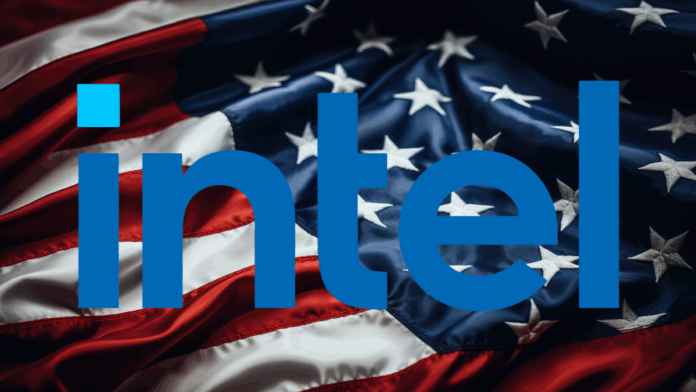With this deal, the U.S. government has become Intel’s largest shareholder
In sum – what to know:
Historic investment in Intel– The U.S. government is acquiring a 10% stake in Intel via an $8.9 billion deal, plus prior CHIPS grants, bringing the total federal support to $11.1 billion.
Largest shareholder – Washington becomes Intel’s biggest shareholder, while also securing a five-year warrant to buy an additional 5% if the company’s foundry ownership drops below 51%.
Policy shift – The move underscores a dramatic shift in U.S. industrial policy — deep federal involvement in a private tech giant to bolster domestic chipmaking and reduce reliance on foreign supply chains.
In a landmark move, the U.S. government is acquiring a 10% stake in Intel through an $8.9 billion investment — bringing its total support, including $2.2 billion in prior CHIPS grants, to $11.1 billion. Executed at $20.47 per share, the deal is financed through unpaid CHIPS Act grants and Secure Enclave program funds, instantly making the government Intel’s largest shareholder. Washington also secured a five-year warrant to purchase an additional 5% stake if Intel’s foundry ownership drops below 51%.
President Trump framed the move as a strategic push to shore up domestic semiconductor leadership, while Commerce Secretary Howard Lutnick called it “historic.” Intel’s stock jumped 5.5% in regular trading and rose another 6% in extended hours.
This marks an unprecedented level of federal involvement in a U.S. tech giant. It follows a series of unorthodox policy decisions under the Trump administration, including a “golden share” in U.S. Steel, revenue-sharing arrangements with Nvidia and AMD on AI chip sales to China, and tighter export controls. Together, these moves reflect a broader shift toward industrial intervention aimed at securing supply chains and asserting technological autonomy — though they raise difficult questions about corporate independence and the boundaries between government and industry.
Intel CEO Lip-Bu Tan commented: “President Trump’s focus on U.S. chip manufacturing is driving historic investments in a vital industry that is integral to the country’s economic and national security. We are grateful for the confidence the President and the Administration have placed in Intel, and we look forward to working to advance U.S. technology and manufacturing leadership.”
Intel also stated that the government’s investment will be a passive ownership, with no board representation or other governance or information rights.
At the same time, SoftBank has injected $2 billion into Intel, paying $23 per share for roughly a 2% stake, becoming the company’s fifth-largest shareholder. The Japanese conglomerate, which has steadily expanded its AI and semiconductor portfolio, signaled strong confidence in Intel’s turnaround strategy. Shares surged to $25 in after-hours trading on the news.
The dual moves by Washington and SoftBank highlight Intel’s strategic importance at the intersection of national security, industrial policy, and global tech competition. With government capital and private investment flowing in, the company now faces pressure to deliver on manufacturing, AI chip innovation, and foundry services — even as questions remain about how far state involvement in corporate America should go.

